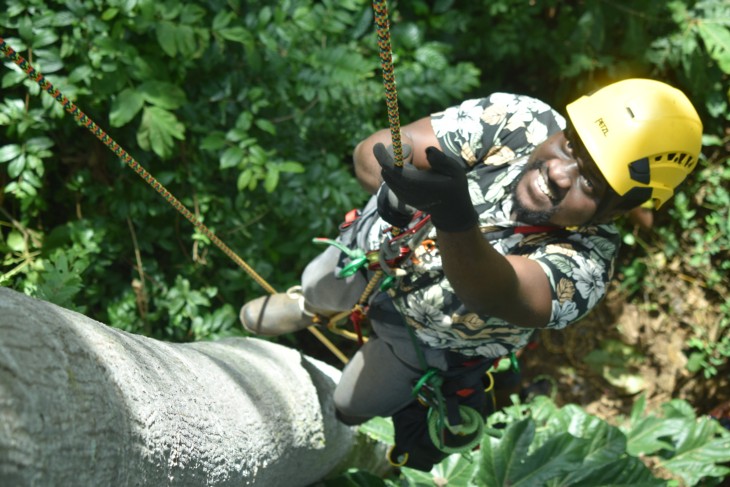 science ClimateCitizen science in the treetopsAt sunrise, deep in Ghana’s tropical forest, a camera 40 metres above ground wakes up. It captures a treetop bursting into bloom, or not... A small detail in a vast green landscape, but one that holds a crucial clue to understanding how our climate is changing.
science ClimateCitizen science in the treetopsAt sunrise, deep in Ghana’s tropical forest, a camera 40 metres above ground wakes up. It captures a treetop bursting into bloom, or not... A small detail in a vast green landscape, but one that holds a crucial clue to understanding how our climate is changing.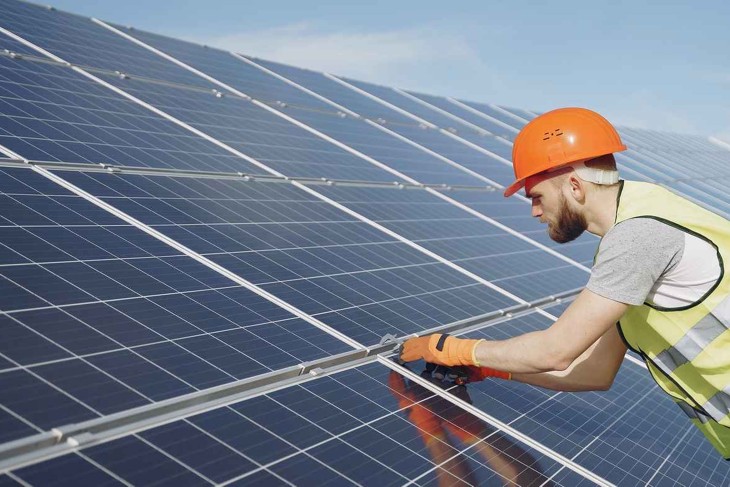 science ClimateIdea from Twente to nationwide movementThe energy transition requires action. Not just from policymakers or engineers, but precisely from the people who have to do it: the installation engineers, work planners and technicians. They are the key to change. But how do you give them space to learn the necessary skills as well as to innovate?
science ClimateIdea from Twente to nationwide movementThe energy transition requires action. Not just from policymakers or engineers, but precisely from the people who have to do it: the installation engineers, work planners and technicians. They are the key to change. But how do you give them space to learn the necessary skills as well as to innovate?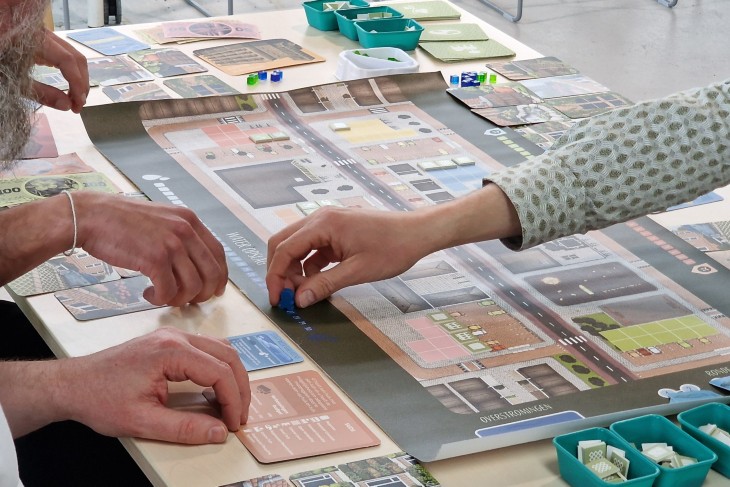 science ClimateKees Study: Can board games make us more climate resilient?What if preparing for climate change could be as simple as playing a game? Cities everywhere are dealing with flooding, but not everyone knows what they can do to help. Sustainable Drainage Systems (SuDS), like rain barrels and green roofs, could make a huge difference. But how do you educate people about them? My name is Kees, and I am participating in experiments to learn more about the research at the University of Twente. In this Kees Study, I participated in the research of Dr. Carissa Champlin from the Urban and Regional Planning department at ITC.
science ClimateKees Study: Can board games make us more climate resilient?What if preparing for climate change could be as simple as playing a game? Cities everywhere are dealing with flooding, but not everyone knows what they can do to help. Sustainable Drainage Systems (SuDS), like rain barrels and green roofs, could make a huge difference. But how do you educate people about them? My name is Kees, and I am participating in experiments to learn more about the research at the University of Twente. In this Kees Study, I participated in the research of Dr. Carissa Champlin from the Urban and Regional Planning department at ITC.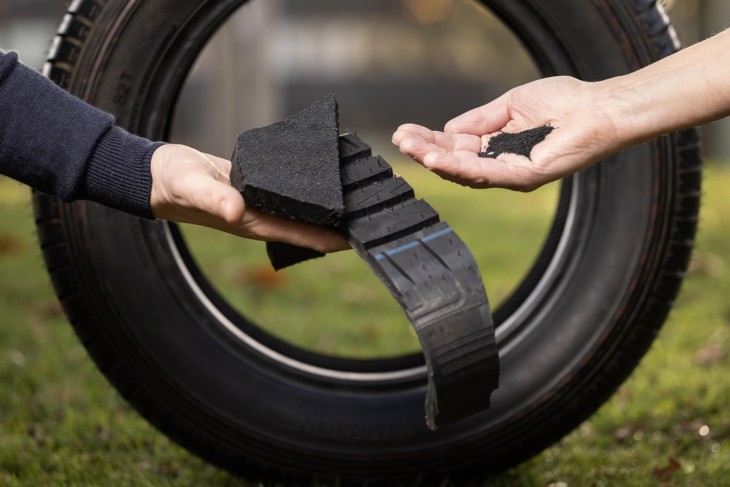 science ClimateWhy is rubber indispensable in our daily lives?From the tyres that keep our cars safely on the road to the soles of our shoes that provide comfort with every step – rubber is everywhere. But what makes this material so essential to our daily lives? In this story, we delve into the world of rubber alongside Professor Dr Anke Blume, an expert in elastomer technology at the University of Twente, to understand its many uses and why it matters so much.
science ClimateWhy is rubber indispensable in our daily lives?From the tyres that keep our cars safely on the road to the soles of our shoes that provide comfort with every step – rubber is everywhere. But what makes this material so essential to our daily lives? In this story, we delve into the world of rubber alongside Professor Dr Anke Blume, an expert in elastomer technology at the University of Twente, to understand its many uses and why it matters so much.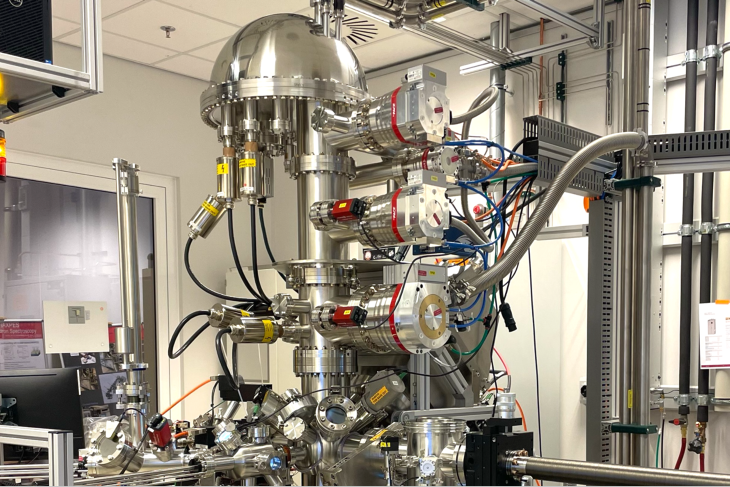 science ClimateThe battery in your smartphone could last much longer than it does nowBatteries are everywhere. In your pocket, in your car and in lots of other places. Yet, despite their ubiquity, batteries are far from reaching their full potential. They degrade over time, charge slowly and are often made of unethically sourced or environmentally harmful materials. Prof. Mark Huijben and his Research Group are looking into novel battery materials to extend battery life and improve performance across applications, from smartphones to heavy machinery.
science ClimateThe battery in your smartphone could last much longer than it does nowBatteries are everywhere. In your pocket, in your car and in lots of other places. Yet, despite their ubiquity, batteries are far from reaching their full potential. They degrade over time, charge slowly and are often made of unethically sourced or environmentally harmful materials. Prof. Mark Huijben and his Research Group are looking into novel battery materials to extend battery life and improve performance across applications, from smartphones to heavy machinery.
 science ClimateWhat satellites don’t tell us (yet): The Veluwe as a living laboratoryIn the heart of the Netherlands, among the centuries-old trees of the Veluwe, a new way of studying our planet is taking shape. Using advanced sensors, Paul Vermunt is comparing mathematical models with satellite data. His ultimate goal is to enable satellites from among other ESA to measure the water content in forests.
science ClimateWhat satellites don’t tell us (yet): The Veluwe as a living laboratoryIn the heart of the Netherlands, among the centuries-old trees of the Veluwe, a new way of studying our planet is taking shape. Using advanced sensors, Paul Vermunt is comparing mathematical models with satellite data. His ultimate goal is to enable satellites from among other ESA to measure the water content in forests.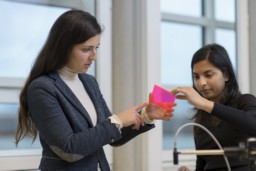 science ClimateWhy do solar panels struggle in winter?Did you know that in winter, solar panels produce only 10% of their summer output? In a country like the Netherlands, where we lead the world with 3.5 solar panels per person, this seasonal drop is a major challenge. Why do solar panels produce so little energy in winter? And what can we do about it?
science ClimateWhy do solar panels struggle in winter?Did you know that in winter, solar panels produce only 10% of their summer output? In a country like the Netherlands, where we lead the world with 3.5 solar panels per person, this seasonal drop is a major challenge. Why do solar panels produce so little energy in winter? And what can we do about it?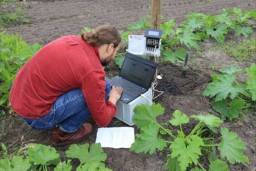 science Circular EconomyIs this the farm of tomorrow?At Citizen Farm Herenboeren Usseler Es, farmers are exploring how data can help them adapt to climate change challenges, such as unpredictable weather and longer growing seasons. Researchers from the University of Twente are helping by providing them with more precise data for better-informed farming decisions. The goal is to enhance local food production while offering valuable insights for farms around the world.
science Circular EconomyIs this the farm of tomorrow?At Citizen Farm Herenboeren Usseler Es, farmers are exploring how data can help them adapt to climate change challenges, such as unpredictable weather and longer growing seasons. Researchers from the University of Twente are helping by providing them with more precise data for better-informed farming decisions. The goal is to enhance local food production while offering valuable insights for farms around the world.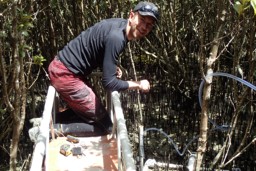 science ClimateMangroves: the natural superheroes that protect our coastsWhen you think of protecting our coasts, you probably think of dikes and seawalls. But did you know that mangroves, a special type of tree that grows between land and sea, also play an essential role in coastal protection? In this story, Erik Horstman, associate professor of Civil Engineering, tells you how these unique trees can be the key to defending our coasts against rising sea levels and extreme weather conditions.
science ClimateMangroves: the natural superheroes that protect our coastsWhen you think of protecting our coasts, you probably think of dikes and seawalls. But did you know that mangroves, a special type of tree that grows between land and sea, also play an essential role in coastal protection? In this story, Erik Horstman, associate professor of Civil Engineering, tells you how these unique trees can be the key to defending our coasts against rising sea levels and extreme weather conditions. science TechnologyWater, water everywhere... and not a drop to drink: How the Netherlands keeps its drinking water safeThe Netherlands faces a water crisis: too much water, a shortage of water, agricultural fertilisers, and industrial pollution such as PFAS and medicine residues threaten our drinking water supply. Some new businesses are already denied drinking water connections; new residential areas may soon meet the same fate. It is crucial to invest in water technology for a sustainable future.
science TechnologyWater, water everywhere... and not a drop to drink: How the Netherlands keeps its drinking water safeThe Netherlands faces a water crisis: too much water, a shortage of water, agricultural fertilisers, and industrial pollution such as PFAS and medicine residues threaten our drinking water supply. Some new businesses are already denied drinking water connections; new residential areas may soon meet the same fate. It is crucial to invest in water technology for a sustainable future. science ClimateHow can hydrogen save the overloaded grid?As the world switches to renewable energy, the electric grid — originally designed for the stable energy flows from centralised fossil fuel power plants — is struggling to keep up. Electric vehicles, heavy machinery, and fluctuating sources like solar and wind are putting more strain on the grid. Could blue and green hydrogen be a solution to keep the lights on and machines running?
science ClimateHow can hydrogen save the overloaded grid?As the world switches to renewable energy, the electric grid — originally designed for the stable energy flows from centralised fossil fuel power plants — is struggling to keep up. Electric vehicles, heavy machinery, and fluctuating sources like solar and wind are putting more strain on the grid. Could blue and green hydrogen be a solution to keep the lights on and machines running?
In this story, Dr. Yashar Hajimolana, Assistant Professor Energy Systems Integration at the University of Twente, explains how hydrogen can contribute to a more sustainable and stable energy system.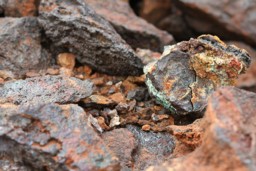 science ClimateFive minerals that can help to save the planet from the carbon crisis (natural kryptonite is one of them)The switch from fossil fuels to renewable energy is going to need some nifty technology that depends on chemical elements that we have not used much before, and most of these come from minerals in rocks in the Earth’s crust. Five of these minerals stand out as Earth’s potential lifesavers.
science ClimateFive minerals that can help to save the planet from the carbon crisis (natural kryptonite is one of them)The switch from fossil fuels to renewable energy is going to need some nifty technology that depends on chemical elements that we have not used much before, and most of these come from minerals in rocks in the Earth’s crust. Five of these minerals stand out as Earth’s potential lifesavers.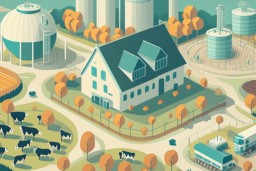 science Circular EconomyFrom waste to wealth: Overijssel’s Green RevolutionThe province of Overijssel is known for its robust agricultural and animal-farming activities. But the bustling livestock farms come with a cost. The animals produce an overwhelming amount of manure, leading to water pollution and harmful emissions. But what if this ‘waste’ could become a source of energy?
science Circular EconomyFrom waste to wealth: Overijssel’s Green RevolutionThe province of Overijssel is known for its robust agricultural and animal-farming activities. But the bustling livestock farms come with a cost. The animals produce an overwhelming amount of manure, leading to water pollution and harmful emissions. But what if this ‘waste’ could become a source of energy? science ClimateWill we be going on holiday in a hydrogen plane in 10 years' time?How can we make our holidays more sustainable? A question that concerns many engineers, scientists, and citizens. Emissions need to decrease, but in the aviation industry, that's not so simple yet. Research at the University of Twente is investigating a promising technology that could lead to hydrogen-powered airplanes: cryogenic superconductivity.
science ClimateWill we be going on holiday in a hydrogen plane in 10 years' time?How can we make our holidays more sustainable? A question that concerns many engineers, scientists, and citizens. Emissions need to decrease, but in the aviation industry, that's not so simple yet. Research at the University of Twente is investigating a promising technology that could lead to hydrogen-powered airplanes: cryogenic superconductivity.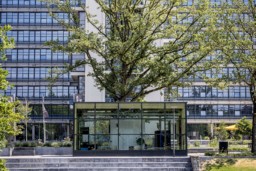 science ClimateThis glass laboratory could be the key to unlimited clean drinking waterA looming shortage of clean drinking water is screaming for innovations in water treatment. The Waterlab of the Membrane Science and Technology cluster gives an insight into possible solutions.
science ClimateThis glass laboratory could be the key to unlimited clean drinking waterA looming shortage of clean drinking water is screaming for innovations in water treatment. The Waterlab of the Membrane Science and Technology cluster gives an insight into possible solutions.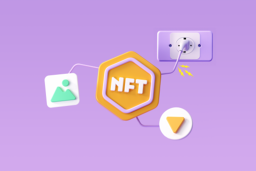 science DigitalisationThe pollution of our digital worldBitcoin, non-fungible tokens (NFTs), and other popular blockchain innovations represent our shift to a digital society. But this transition comes at a cost. The emissions generated by these blockchain technologies from the year 2021 alone are responsible for around 19,000 future deaths. This alarming statistic raises many questions: How is this possible and what can we do about it?
science DigitalisationThe pollution of our digital worldBitcoin, non-fungible tokens (NFTs), and other popular blockchain innovations represent our shift to a digital society. But this transition comes at a cost. The emissions generated by these blockchain technologies from the year 2021 alone are responsible for around 19,000 future deaths. This alarming statistic raises many questions: How is this possible and what can we do about it?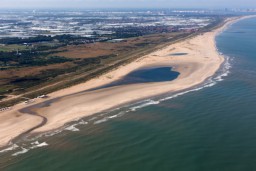 science ClimateGod created the earth, but the Dutch created the NetherlandsThe Netherlands has been fighting a battle against water for centuries. This symbolism of water as the enemy was popular among 20th-century engineers. In the 21st century, there is more focus on natural processes, and we speak of water management instead. But what will the Dutch water landscape look like in another century?
science ClimateGod created the earth, but the Dutch created the NetherlandsThe Netherlands has been fighting a battle against water for centuries. This symbolism of water as the enemy was popular among 20th-century engineers. In the 21st century, there is more focus on natural processes, and we speak of water management instead. But what will the Dutch water landscape look like in another century?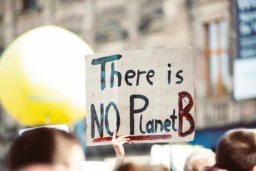 science ClimateWhy we need to think about a climate plan BCan we limit global warming to 1.5 oC? Unlikely, if you'd ask Debra Roberts. The co-chair of the Intergovernmental Panel on Climate Change (IPCC) is already brainstorming about a plan B. What could be our next steps?
science ClimateWhy we need to think about a climate plan BCan we limit global warming to 1.5 oC? Unlikely, if you'd ask Debra Roberts. The co-chair of the Intergovernmental Panel on Climate Change (IPCC) is already brainstorming about a plan B. What could be our next steps?